The Battle for Inclusive Education: A Glimpse at the Frontlines
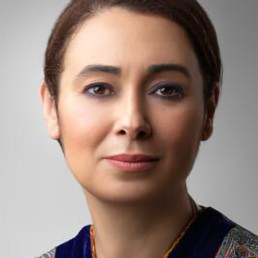
Written by Rachida Dahman
Rachida Dahman is an international educator, a language and literature teacher, and an educational innovator. She started her career in Germany as a teacher trainer advocating the importance of relationships above academics. She then moved to Luxembourg where she teaches German language and literature classes to middle and high school students. She is an award-winning poet, co-author of the best-selling book, ATLAS DER ENTSCHEIDER Entscheiden wie die Profis- Dynamik, Komplexität und Stress meistern.
“It is important to me to consciously assimilate insights into developments, causes, and effects of working with children and families and to engage in dialogue with other stakeholders”. Rachida Dahman
The question of inclusive education for all remains a central theme that presents us with challenges while simultaneously offering opportunities for change and progress. Amidst this multifaceted scenario, we witness an unprecedented battle on all fronts. From the classrooms to the corridors of power, there is a struggle to shape the educational landscape and pave the way for a fairer future.
A Reordering of the Education System
The good news first: schools do not have to remain in permanent crisis. Despite limited resources and the need to address the needs of children and families with special requirements, there is a growing demand for a fundamental restructuring of the education system. This restructuring transcends mere resource reallocation; it demands the deconstruction of antiquated paradigms and the reconstruction of an educational system that fundamentally empowers students to question prevailing norms, resist conformity, and actively redefine the contours of their world. From parents to teachers to students, there is a push towards developing individuals who can make decisions with integrity and zest for life.
Key Factors in Transformation
School infrastructure: The modernization of teaching and learning materials, along with the integration of innovative technologies, is crucial and must be driven by a fundamental rethinking of what education should achieve. Additionally, forming smaller classes is necessary —not merely as a logistical improvement but as a means to foster genuine dialogue between students and teachers, allowing for personalized learning that respects and celebrates diverse linguistic and cultural backgrounds. This approach may also serves as a countermeasure to the homogenizing effect of standardized tests, which too often serve to enforce conformity rather than inspire excellence.
Conditions of School Buildings
A thorough analysis of school buildings is essential not just to meet the high standards of safety, accessibility, and educational quality, but to reimagine these spaces as the physical embodiment of our educational ideals. Renovating and modernizing existing infrastructure is imperative, yet it must go beyond mere compliance with regulations. We need to envision schools as dynamic environments that inspire learning, creativity, and a sense of community. This requires an architectural revolution, one that not only considers the physical space but also how that space interacts with the psychological and emotional wellbeing of students and educators alike. By crafting buildings that are not just functional but transformational, we pave the way for an education system that nurtures the full potential of every individual.
Environmental Awareness
Integrating environmental topics into the curriculum and implementing measures for energy efficiency plays a central role. Heightened environmental consciousness contributes to reducing the ecological footprint of schools. Integrating environmental topics into the curriculum is more than teaching students to recycle or save energy. It is about fostering a profound connection to the planet they inhabit. The measures for energy efficiency must be implemented with an urgency that reflects the precariousness of our environmental situation, making schools not just places of learning, but sanctuaries of sustainability. This heightened environmental consciousness is not merely a contribution to reducing the ecological footprint of schools; it is an act of rethinking how we coexist with the natural world. By embedding this awareness into the very fabric of education, we are nurturing a generation that understands stewardship as an essential part of their identity, a generation that sees the care for the Earth as inseparable from the care for their community and their future.
Ensuring Accessibility
All students must be able to participate in the educational process, regardless of their backgrounds or circumstances. This imperative extends particularly to children and families traumatized by the ravages of war, who not only face the direct impacts of conflict but also endure the humiliation it inflicts. Such individuals require special attention and support to overcome the challenges they face in accessing education. This necessitates not only structural measures but also the provision of dedicated resources and tailored interventions to address their unique needs. For it is within the sanctuaries of our schools that we must mend the shattered spirits of those broken by conflict, transforming these halls into spaces where dignity is restored, dreams are rekindled, and the seeds of a just and peaceful future are sown. Only by ensuring inclusivity and support for the most vulnerable members of our communities can we truly uphold the principles of equitable education for all.
Career-Oriented Programs
A better connection between school and the professional world facilitates the transition into the workforce and provides practical insights. In this context, education must do more than just prepare students for the workforce – it should also embody egalitarian values and act as a powerful equalizer. To achieve this, such programs need to be developed with meticulous care. By embedding inclusivity and gender equality at their core, these programs ensure that every student, regardless of background, has the opportunity to pursue careers in fields traditionally dominated by men. Thoughtfully bridging the gap between school and the professional world, these initiatives foster a strong sense of purpose and social responsibility in students, motivating them to use their skills to drive meaningful, positive change.
Advancing Digitalization
The utilization of digital technologies offers opportunities for an enhanced learning environment but also necessitates training for teachers and the promotion of digital literacy. Advancing digitalization presents an exciting frontier for transforming our learning environments, offering unprecedented opportunities for innovation and engagement. However, it is crucial to recognize that harnessing these digital technologies demands more than just integration; it requires a fundamental shift in how we approach education. Teachers must be equipped not only with the technical skills to navigate new tools but also with the pedagogical strategies to effectively incorporate them into their teaching. Furthermore, promoting digital literacy among students is not merely about using technology but about fostering critical thinking and ethical awareness in an increasingly digital world.
Community Engagement
Local communities play a crucial role in promoting education. Collaborating with local organizations and businesses opens various avenues of support. They are pivotal in advancing education, offering far more than just supplementary support. Collaborating with local organizations and businesses transforms these entities into active partners in the educational process. This partnership is about forging meaningful connections that invigorate and expand the learning experience. By leveraging community assets— from mentorship programs and real-world internships to innovative local projects—education becomes a shared endeavor that reflects and responds to the needs and aspirations of the community. It fosters a culture where education is not just a responsibility of the institutions but a collective mission, driving social change and collective growth.
A Call to Action for Decision-Makers
The transformation of the education system requires a long-term strategy and committed collaboration from all stakeholders. Particularly at the institutional level, a shift in mindset and active communication are essential. Only when all actors understand their roles fully and work together constructively can we achieve inclusive education for all. Decision-makers must urgently champion a shift in mindset and prioritize transparent, heartfelt communication at every level of the institution. This is a passionate call for decisive leadership and unwavering unity. It takes every stakeholder to fully grasp their vital role and work together with genuine commitment to break down barriers and create a path to truly inclusive education.
Building Productive Relationships in Education
In the midst of pervasive and pressing challenges, the importance of fostering harmonious and fruitful relationships cannot be overstated. It is crucial to establish and sustain these relationships over the long term, working collaboratively with schools, teachers, and families to anchor and stabilize structures that provide environments where children can thrive and develop undisturbed. The integrity of educational structures hinges on solid relationships, which provide a foundation of support and stability for students. By fostering open communication and mutual respect among all stakeholders, we build a framework that supports not only academic success but also holistic development.
Securing the Involvement of all Stakeholders
It is essential, in my opinion, to ensure the engagement of all relevant stakeholders to create such an environment for children. In times of ubiquitous and pressing burdens, it is crucial to establish and maintain productive relationships for the long term, to collaborate with existing schools, teachers and families to anchor and stabilize structures so that children can find environments in which they can fully unfold, undisturbed.
Unfortunately, in my experience, schools often do not thoroughly evaluate their internal weaknesses. Instead, these issues are frequently ignored or passed off as someone else’s problem, which prevents meaningful resolution. Addressing these weaknesses honestly is crucial for understanding and resolving conflicts effectively.
The Importance of Dialogue and Collaboration
It is important to me to consciously assimilate insights into developments, causes, and effects of working with children and families and to engage in dialogue with other stakeholders. In my view, building bridges between various stakeholders—parents, educators, policymakers, and community leaders—is essential for creating an inclusive educational environment. By fostering open dialogue and collaboration, we can address the diverse needs of students and families, thereby promoting a more equitable and supportive educational system.
To truly advance the cause of inclusive education, it is imperative to deeply engage with and integrate insights into the evolving dynamics of working with children and families. This means actively seeking out and understanding the root causes and far- reaching effects of our educational practices. Engaging in meaningful dialogue with all relevant stakeholders—parents, educators, policymakers, and community leaders is fundamental. Building robust connections between these diverse groups remains a necessity for crafting an educational environment that genuinely supports and includes every student. Such collaboration requires a profound commitment to open, honest, and strategic dialogue. Through this collaborative effort, we can address the varied and complex needs of students and families, creating a more equitable and nurturing educational framework. Our collective aim must be to forge these critical alliances, leveraging our shared insights and experiences to dismantle barriers and drive systemic change. By uniting our efforts, we pave the way for an educational system that not only acknowledges but embraces diversity, ensuring that every child receives the support they need to thrive. This is not just a vision but a necessary evolution towards a truly inclusive future.
Conclusion
The battle for inclusive education is a complex endeavor that encompasses many fronts. Yet, despite the challenges, there is hope. By working together on solutions and embracing the diversity of our society as an opportunity, we can create an educational landscape that is accessible and fair for all. It is clear that no single entity can address the challenges alone. It requires a concerted effort from all stakeholders to create environments where every child has the opportunity to thrive. By recognizing the importance of productive relationships, engaging in meaningful dialogue, and working collaboratively, we can pave the way for a brighter future in education—one that is inclusive, supportive, and responsive to the needs of all learners.
Are the Right People Sitting at the Table?
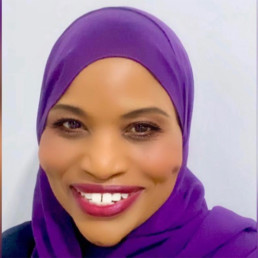
Written by Dr Fatima Bailey
Dr. Fatima Bailey is the Chair of the Department of Teacher Education and Teacher Leadership at the Sharjah Education Academy, in the UAE. Dr. Bailey worked in Pre-K-12 education as a director, school principal, vice principal and teacher in the UAE and US. Dr. Bailey also serves as a mentor in the Ta’Alouf Program for Career Based Teacher Development at the Al Jalila Foundation. Prior to her tenure at SEA, Dr. Bailey served as an advisor on high-level UAE national initiatives and projects. An avid researcher, Dr. Bailey is also the recipient of the prestigious Gordon Allport Prize Award for Outstanding Papers.
Originally published on the Sharjah Education Academy (SEA) website on 30/12/23: https://sea.ac.ae/are-the-right-people-sitting-at-the-table/
Authentic and Sustainable Leadership for Leading and Improving 21st Century Schools
The UAE has designated 2023 as “the year of sustainability” (1). The country continues to take leaps and bounds, inventing and forging new pathways of sustainable practices across all sectors, including education. Towards this end, a specific type of viable leadership is required for creativity and longevity in schools.
Sustainable and authentic leadership is one possibility. School leaders are entrusted to make changes and reform happen at their schools. Many are moving away from making pledges and commitments to creating meaningful and long-lasting change through sustainable strategies and authentic practices. The need to continuously improve schools has made it increasingly clear that it is time to accelerate our thinking, innovate new approaches, and adapt our actions. Through revolving conversations, we see school leaders collaborate, meet, and sit with members of their learning community to create pathways forward.
Welcome to the Table
School leaders are entrusted to create change, implement those changes, and find ways to maintain longevity. Sustainable and authentic leadership are two buzzwords I’ve heard come up at meetings, symposiums, and in research literature around current trends. Being invited to a meeting and sitting at “the table” is an opportunity to share and exchange ideas and build collective intelligence around paramount issues. It provides a platform to be heard and to listen.
Those invited to school leadership meetings typically use a level of influence. They leverage their credibility and expertise to make decisions, drive initiatives forward, initiate policies, and create change. School leaders come to the table often, at different intervals, and for different and distinct reasons. They must carefully think about who they invite to the table to help build collective intelligence, address complex problems, and arrive at solutions that will not only work short-term but long-term as well. The needs of schooling today are dynamic and complicated.
The Survey Says
Upon reflecting on conversations and dialogues I had with school leaders about the challenges they face to create meaningful reform and lasting change in schools, I was inspired to read about nuances and trends in leadership. Interestingly, I found one blog by the Center for Creative Leadership (2023) with a survey and poll. The question was about the most powerful communication skills that today’s leaders should demonstrate. When I first looked at the poll question, I thought, “Oh, this is easy.” In my opinion, I felt the number one and most powerful skill needed is “trust” or to be “trustworthy”. However, trust was not one of the four options.
I completed the poll using the possible answer choices provided. Poll respondents were given four choices: 1) authenticity, 2) setting clear expectations, 3) encouraging input, and 4) simplifying and being direct. I reflected on my reading and experience. Later, I returned to view the results of the poll. I was intrigued by all the responses. The response that was generated by over 55% was “setting clear expectations”. I disagreed and wondered why this response generated such a high percentage.
Making the Case
In my view, trust should have been one of the options and responses. But it was not, and I wondered why. Back to “sitting at that table” and why I thought that trust is so important. More questions came to my mind. What does it mean to be trusted? Why is that important? How does trust evolve? Can leaders do their best work if they are not trusted to do so or if they are unable to trust others in their team? Does the trait and characteristic of being trustworthy lead one to being authentic? How can one do this with longevity?
Leading Authentically
I then had an “aha” moment about the type of leader who is authentically trustworthy and how this can position one’s leadership. “Authenticity” is about consistently being true to yourself and your values and not pretending to be someone you’re not. School leaders should demonstrate authenticity. When they are genuine, consistent, and authentic, those who depend on them can sense it, see it, and are more likely to trust them because they feel their school leaders are not hiding anything or trying to hurt or manipulate them. Teachers, parents, and students might feel rest assured by school leaders who demonstrate “how they are truly, genuinely and intentionally committed” to caring about learners in schools and improving the learning journey for children.
Leading Sustainably
School leaders are responsible for changing lives by changing education. They should lead in authentic ways that can be sustained. Sustainable leadership is about leading others toward consistent, actionable, impactful, and long-lasting change. Sustainable leaders focus on making decisions that are rooted in strong moral and ethical principles and values and are committed to ensuring social responsibility. (2) They are mindful of how they interact with others, present their ideas, and share their thought processes through open dialogue with others. They galvanize and mobilize efforts for school improvement. They reset standards and reshape the tone. Schools today require principals, vice principals, middle leaders, teachers, parents, and students to be sustainable leaders, all serving vital roles in helping schools continue onward and upward. (3)
Take The Leadership Challenge: Tomorrow Starts Today
I encourage school leaders to think about what this means to them and how they might incorporate authentic and sustainable leadership in their work to help their learning community thrive. Are you ready to take on a new leadership challenge?
I invite you too! If asked to “sit at the table” and join a meeting to share your insights, expertise and/or experiences …consider whether you are the right person and ask yourself how you will do so. Because how you decide to “sit at the table” … will speak volumes about your leadership. It might shape decisions, actions, and future outcomes. The way you choose to “sit at the table” today might impact who “sits at the table” tomorrow. Happy sitting!
Citations and Footnotes
(1) Year of Sustainability. https://uaeyearof.ae/ accessed on November 15, 2023
(2) Liao Y. (2022). Sustainable leadership: A literature review and prospects for future research. Frontiers in psychology, 13, 1045570. https://doi.org/10.3389/fpsyg.2022.1045570
(3) Özkan, P. (2022). School Principal as An Environmentally Sustainable Leader, Journal of Educational Leadership and Policy Studies, 6(1)
Talking Race and Racism with Children - when do we start?
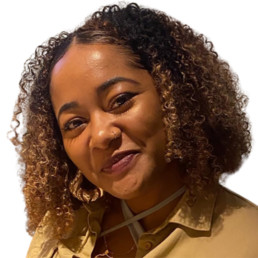
Written by Omena Osivwemu
Former Primary Teacher, Humanities Lead, Researcher. Author of 'Decolonising the Curriculum: A Comparative Case-Study of Black Learner and Educator Perspectives and Experience in London and Johannesburg' in The BERA Guide to Decolonising the Curriculum.
This question has played on my mind for a while; at a conference of educators reckoning with race, a Black senior leader who is also a parent asked “when is the right time to talk to my children about race?” This stuck with me and the academic on the panel looked to me, as an experienced Primary School teacher to respond.
Given my lived experience growing up Black in Northern England, training and teaching across the North and the Midlands, the answer seemed obvious to me.
In short- right away! As soon as children are absorbing language, learning values and copying behaviours.
As soon as we teach toddlers what is a boy and what is a girl, that is the social construction of gender- even if you opt for a more gender-neutral or fluid approach- that is still teaching them difference. When we teach children to share; be kind; tell the truth etc., all values we deem to be ‘right’, we should also be teaching them that sometimes not everyone will be kind, share or tell the truth. At times this can be due to our differences. But difference is a wonderful, necessary part of life!
Of course, discussions should be age-appropriate in language children understand and use. ‘Sulwe’ by Lupito Nyong’o is a beautiful book, aimed at young children and explores themes of ‘race’ and colourism. Now, there is a wonderful array of diverse books available for all ages! As children get older, we can then build on their racial literacy, empowering them to make some sense of the social construction that is ‘race’. For adults, I would recommend ‘How to raise an anti-racist’ by Ibram X. Kendi as a great place to start.
As soon as we read traditional tales to children, let them watch YouTube, TV or films, we are passing on messages about society, how people interact and what is deemed ‘right’ and ‘wrong’. When children can describe something as red, green, blue, black and white; they can and will use this language to describe differences between people. It may not be ‘accurate’ to the adult lens, for instance as a young child in a Black, mixed family, I would draw my father’s dark brown skin as purple and my mother’s very fair brown skin as pink.
One of my earliest memories as a 4 year old (contextualised by my mother’s memory) at a mostly White Nursery, was feeling different. Too brown, with hair that was too dark and curly, and eyes that were too dark, compared to the teachers, other children and most importantly the blonde, blue-eyed dolls which I adored! Then, when the teachers with good intentions, changed the play to ‘Curlilocks’ so that I could play the character Goldilocks, I knew I wasn’t ‘right’- I didn’t fit. If Black and brown children aren’t too young to experience or witness racialisation or racism, nobody else is too young to learn about ‘race’ and racism.
Later on during undergrad’, volunteering in local primary schools in Northern Lancashire, as soon as I walked into classrooms, children as young as 4 would stare wide-eyed and mutter under their breath “she’s Black!”. Throughout my teaching career across England and Spain, most times I was the only Black teacher children had seen. The responses have varied from positive, such as expressing their love for my curly hair, inquisitive questions and collaborative cultural exchange. To the negative, for example young children avoiding touching my skin when I gave them something, or 6 year olds ignoring me as though they didn’t understand my English, because as one boy put it, I was “from Africa”.
I recognise that in Black and brown majority spaces like London, experiences such as mine may be less common. However, if parents, the media, film, books etc. are socialising children as young as 3 and 4 to understand brown skin, or Blackness, or religious dress, or simply human difference such as accents, as ‘bad’ or negative, then we too should be equipping our children with the understanding that such a belief system (white supremacy) exists and continues to prevail- albeit gently. We should be uplifting Global Majority children to feel proud of their cultural and ethnic backgrounds, histories and identities. We should help children to contextualise what they are seeing and embolden them to have high self-esteem and confidence when facing barriers/ discrimination.
In the same way that we acknowledge teaching children ‘stranger danger’, online safety, how to respond to bullying, physical and mental wellbeing, and healthy relationships in order to protect them from harm and prepare them to safeguard themselves; we should also be empowering all children with the language and understanding to know when discrimination and racism are happening (unfairness / unkindness in children’s terms). In the same way that far-right rioters and sympathisers have taught their children, as we saw this summer, to attack, abuse and harass Black, brown, migrant, Muslim peoples; we too should be teaching our children from early why it is happening and how they can respond.
Equal Pay Day
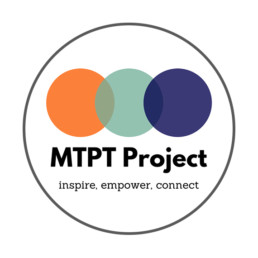
Written by The MTPT Project
The UK’s only charity for parent teachers, with a particular focus on the parental leave and return to work period.
This Autumn, we celebrate International Equal Pay Day (18th September) and the UK’s Gender Pay Gap Day (probably around the 22nd November).
“Celebrate” is probably the wrong term for it, with the United Nations telling us that “Across all regions, women are paid less than men, with the gender pay gap estimated at around 20 per cent globally.”
Out of 146 countries, the UK ranked 15th in a 2023 World Economic Forum comparison, up there with the best and trailing just behind Iceland, Namibia, New Zealand and Rwanda, amongst others.
Fifteenth out of 146 sounds great but… it’s not that great. The UK still has a gender pay gap across all industries of 14.3% meaning that women are paid (on average) 86p for every £1 that men are paid.
In the education sector, it’s even worse, with the gender pay gap standing at 18.1%. Some multi-academy trusts (we won’t name them) fare terribly, with gender pay gaps of up to 44.6%. Why not enjoy the government’s brilliant Search and Compare tool that lays the facts bare in a simple click to satiate your curiosity?
While the graphs in ASCL et al.’s updated 2023 report indicate that a slight gender pay gap exists at almost all levels (female classroom teachers actually slightly outearn male classroom teachers), a seismic shift happens between the ages of 30-39, particularly between 35-39 when – you guessed right – teachers are most likely to become mothers.
57% of female teachers aged 30-34 are mothers, jumping to 77% for women aged 35-39. During this time, the gender pay gap increases by between £846 (“other leadership”) to £2,131 (headteachers) per year. Classroom teachers – previously outearning their male counterparts by £143 per year – suddenly suffer a wage gap of £1,253.
The explanation: of course, it is the motherhood penalty in action. Studies largely agree that “women’s inability to combine work with family seems to account for the lion’s share of the pay gap” and in Missing Mothers – a report co-authored by The MTPT Project and The New Britain Project – we explain how this impact is being felt in teaching.
Motherhood means that we are losing experienced teachers in droves; they are paid less when they remain in the profession, and are underrepresented at leadership level.
Solving the gender pay gap in any industry is complicated. The same goes for what we like to term more precisely, the “fiscal motherhood penalty in education”. But the Missing Mothers report lays out one simple recommendation to government: shift the investment currently focused on recruitment, to retention.
Specifically, focus on retaining and improving working conditions for women aged 30-39 by addressing and reducing the motherhood penalty.
Want to do more this autumn to reduce the impact of the motherhood penalty in education? Book in a 30 minute call with Emma at The MTPT Project between 18th September – 22nd November. She’ll share more about why the motherhood penalty exists and the right questions to ask, and strategies to implement to make a real difference in your organisation. The fun gimmick? She’ll charge you the rate of your organisation’s pay gap for the consultation session.
KCSIE 2024: Safeguarding LGBT students
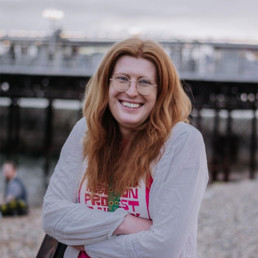
Written by Lilly Emma Thynne
Lilly Emma (she/her) is a postgraduate student at Lancaster University (2024-25). Previously, as a teacher in state and private secondary schools, she has held additional pastoral and pedagogical responsibilities as Deputy Designated Safeguarding Lead, Resident Tutor (boarding), and Lead for Technology in Teaching and Learning.
Keeping Children Safe in Education (KCSIE) has significantly changed the guidance for safeguarding LGBT+ students. These changes remain under review, pending the publication of guidance for supporting ‘gender questioning children’. To avoid confusion, these changes can be considered alongside other sections of KCSIE (statutory guidance), legislation, and non-statutory guidance.
When writing policies, clarity of language is important. KCSIE states, “All staff should be aware that terminology is a significant component in many safeguarding and wellbeing issues” [s22, p11]. For the purposes of this post:
- Transgender children are children whose gender identity does not match that assigned at birth.
- Gender-questioning children are children who are questioning whether their gender identity matches that assigned at birth.
- Trans+ refers to transgender and gender-questioning people.
- Child/children refers to anyone 17 years or younger.
- Young person refers to anyone 18 years or older.
This post identifies four changes which can be better understood by considering pre-existing legislation and guidance:
1.Removing reference to “trans” students
KCSIE removes reference to “trans” students, replacing it with “gender questioning”.
The Equality Act 2010 and Schools (2014) guidance identifies that the protected characteristic of “Gender Reassignment” applies to students [page 5]. For example, “failing to protect a transgender pupil against bullying by classmates” may make the school guilty of unlawful discrimination [page 8]. The use of the word ‘transgender’ shows the need for schools to maintain reference to pupils who are actively undergoing gender reassignment in addition to those students who are ‘gender questioning’.
KCSIE (2024) maintains the use of the phrase “transphobic bullying” [s91, p28], which refers to bullying directed at a child for either being or being perceived as trans+. The use of this phrase shows that the DfE has not completely ended the use of the word ‘transgender’.
KCSIE (2024) defines ‘safeguarding’ as, among other things, “preventing the impairment of children’s mental and physical health or development”. By removing reference to ‘transgender students’ and replacing this with exclusive reference to ‘gender questioning students’, students who are confident in their gender identity may interpret this as delegitimisation of their identity, leading to further marginalisation. Research suggests trans+ students who feel rejected by their school community are at greater risk of isolation and poor mental health due to internalised transphobia (Horton, 2023; Chodzen et al., 2019).
The Gender Recognition Act (2004) allows anyone aged 18 or older who has lived in their affirmed gender for at least 2 years with a diagnosis of gender dysphoria to change their gender legally. Any young person granted a Gender Recognition Certificate (GRC) should have their legal sex changed on school records, and a school should not disclose the student’s former gender. Reference to ‘transgender’ students may be required in a policy to explain this process.
2. Advocating caution towards social transition
KCSIE now references that the Cass review identified, “caution is necessary for children questioning their gender as there remain many unknowns about the impact of social transition” [s206, p55].
The Cass Review (2024, p.164) recommends, “A more cautious approach needs to be taken for children than adolescents”. For adolescents, the review explains, “exploration is a normal process,” and school staff should provide support to protect the student from bullying. Cass says that children who are not yet adolescents must also have their voices heard. If a child pursues social transition, professionals should ensure the child knows all options remain open and that they will be flexibly supported.
The Equality Act 2010 and Schools (2014) states, “Schools need to make sure all gender variant pupils, or the children of transgender parents, are not singled out for different and less favourable treatment from that given to other pupils” [p.17]. For example, a school may need to consider flexibility when applying a uniform policy to a trans+ student [p15].
KCSIE (2024) reminds us that “Under the Human Rights Act, it is unlawful for schools and colleges to act in a way that is incompatible with the convention” [s82, p26].
3. Removal of the requirement for a ‘safe space’
In 2023, KCSIE required schools to “provide a safe space” for LGBT students to share concerns with a trusted adult. In 2024, KCSIE removed “safe space” and replaced it with a more general requirement to “create a culture”.
KCSIE 2024 states that schools and colleges should, where needed, provide a “physical space” for students who are victims of abuse. While not all LGBT+ students are victims of abuse, a report (JustLikeUs, 2021) found that:
- LGBT+ students are twice as likely as their peers to experience child-on-child abuse.
- 1 in 5 LGBT+ students hear negative language daily about LGBT+ people.
- LGBT+ students are x3 more likely to be bullied at least once a week.
- Only 21% of LGBT+ students who were bullied told a teacher.
For this reason, an allocated safe space for LGBT+ students where they can easily find trusted adults may be instrumental in safeguarding these students.
4. Removal of reference to LGBT+ inclusion in PSHE
KCSIE has removed a paragraph reiterating the need to include LGBT content in the RSE curriculum.
Relationships and Sex Education and Health Education statutory guidance (2021) remains unchanged. When age-appropriate, schools must “ensure [LGBT] content is fully integrated” into the RSE curriculum. This content should not be stand-alone. The guidance defines LGBT as “Lesbian, Gay, Bisexual and Transgender”.
Summary
As safeguarding teams enter the new academic year and continue to support trans+ students, consideration of pre-existing legislation and guidance is important to better understand these changes to KCSIE, which remain under review.
References
Guidance and Legislation
The Equality Act 2010 and schools (2014) https://assets.publishing.service.gov.uk/media/5a7e3237ed915d74e33f0ac9/Equality_Act_Advice_Final.pdf
Gender Recognition Act (2004) https://www.legislation.gov.uk/ukpga/2004/7/contents
Relationships Education, Relationships and Sex Education (RSE) and Health Education (2021) https://assets.publishing.service.gov.uk/media/62cea352e90e071e789ea9bf/Relationships_Education_RSE_and_Health_Education.pdf
Keeping Children Safe in Education (2024) https://assets.publishing.service.gov.uk/media/66d7301b9084b18b95709f75/Keeping_children_safe_in_education_2024.pdf
The Human Rights Act (1998) https://www.legislation.gov.uk/ukpga/1998/42/contents
Research
Horton, C. (2023) Gender minority stress in education: Protecting trans children’s mental health in UK schools, https://www.tandfonline.com/doi/epdf/10.1080/26895269.2022.2081645?needAccess=true
Chodzen, G., Hidalgo, M., Chen, D., Garofalo, R. (2019) Minority Stress Factors Associated with Depression and Anxiety Among Transgender and Gender Non-Conforming Youth, https://www.jahonline.org/article/S1054-139X(18)30295-7/abstract
Cass, H. (2024) Independent review of gender identity services for children and young people https://cass.independent-review.uk/home/publications/final-report/
Just Like Us (2021) ’Growing up LGBT+’ https://www.justlikeus.org/wp-content/uploads/2021/11/Just-Like-Us-2021-report-Growing-Up-LGBT.pdf
How to lead a diversity research group
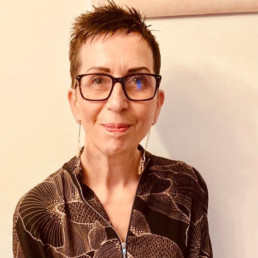
Written by Jayne Carter
Jayne is the Director of Ignite Education Ltd, providing consultancy for practitioners within the Early Years & Primary sector. She uses coaching a a model for change, facilitating professional conversations which are focused on empowering others & generating growth in knowledge & skills.
As part of the L.E.A.D Teaching School Hub’s extensive offer for EDI, I was invited to lead a diversity research group based on Bennie Kara’s fantastic book: Diversity in Schools. This blog is intended to support others who may wish to run similar groups for teachers and school leaders.
The research group was structured around one session per month for each book chapter. It worked well for each participant to read the focus chapter in preparation for the meeting, to be ready to discuss their reflections and implications for their own practice.
Discussions were facilitated around the key messages included in each chapter with the addition of extra resources focused on the needs of the group.
The aims of the research group included:
- To use research & literature as a tool for school improvement
- To develop a culture of peer-to-peer support & critical analysis
- To implement key strategies & approaches at a whole school level
Some of the attendees wanted to focus on whole school implementation, whereas others wanted to improve their own subject knowledge in preparation to share at school.
Each session included a planned gap task based on the focus of the chapter as well as an individual gap task which was identified by each attendee in order to meet the needs of their school.
For example, the third session focused on the chapter ‘How can we create a diverse classroom?’ Everyone carried out the audit included in the book. Individual gap tasks that were chosen included;
- sharing UNESCO inclusion research with members of their SLT
- exploring the free trial of Lyfta as a whole-school EDI resource
- considering how to organise their seating plan to ensure inclusivity
- evaluating the use of cold calling/trio conversations in their classrooms.
Time was planned into the following sessions to discuss reflections from the individual gap tasks and all resources were included in a workgroup padlet. The padlet worked well to ensure that everyone had constant access to key resources/research. It also provided an effective means of communication between meetings.
Being able to meet frequently with attendees helped me as a workgroup lead to understand the priorities for each school and what was important to them. As the meetings progressed, I was able to structure the sessions to become even more personalised to the group’s needs, with additional research and tools being shared and added to the padlet.
Over the seven sessions, attendees enhanced their EDI improvement plan or developed their own EDI plan. The next steps identified after each chapter supported these improvement plans by providing structure and focus.
During the final session the overall impact of and reflections about the workgroup were collected:
- All attendees found the structure of the workgroup useful as it moved from a training session to meetings which were collaborative and supportive of an action research improvement model.
- Attendees liked the planned gap tasks; especially the opportunity to carry out a shared task, which helped shared discussions but also a gap task which was personalised and prompted change at a school level.
- All attendees noted that the additional resources sourced and added to the padlet were valuable with everyone committing to using the padlet next academic year.
As the workgroup lead, the opportunity to guide attendees into analysing research was valuable as it gave me a useful reminder of day-to-day school priorities. One of my own personal outstanding reflections was the knowledge that the plans developed would be sustained as they had been developed carefully and with the vision of not only what needed to be in place but why.
My thanks to Bennie Kara for creating such an accessible and informative book. I hope that this blog encourages others to lead more reading groups or research groups on diversity in schools across the sector.
Inclusion Beyond Tolerance.
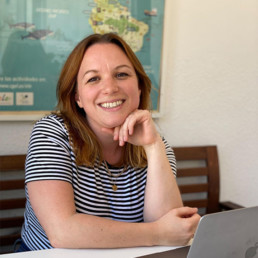
Written by Claire Stancliffe
Claire Stancliffe is an education consultant specialising in gender equity, diversity & inclusion and positive masculinities. She’s on a mission to break down gender stereotypes in schools.
Pride month is well underway, and it’s got me thinking about the thorny issue of tolerance. It’s a word we hear often associated with diversity in general, but very commonly with the LGBTQIA+ community. Tolerance is the idea that we do not need to understand someone to be able to get along with them. That we can all rub along together, to live and let live. Sounds harmless enough right? Yet if I told you I would tolerate your company for the evening, I don’t think you would be thrilled.
When it comes to inclusion, the notion of tolerance falls short. It says, “I don’t mind you breaking the rules”, while all the time upholding and even strengthening social norms. Due to religious differences, the ways we have been socialised and the norms of our various cultures, it will never be possible to create a world where we all see eye to eye on everything, but if we want to encourage true inclusion I think we need to look beyond tolerance, to a more expansive view of what exactly ‘normal’ is.
Breaking gender stereotypes
Up until very recently, our frame of reference for ‘normal’ when it comes to how we raise our children has been cis-heteronormative – that is that everyone’s gender is that which is assigned at birth (or ‘cisgender’), the expectation that all people are or will be heterosexual (or ‘straight’), and that girls behave according to one set of rules, and boys behave according to another. This has led to harmful stereotypes that perpetuate inequality.
It struck me recently that when we encourage young people to see past the narrow confines of gender stereotypes, we are often doing so from a tolerance perspective. By pointing out that it’s possible to break the norm, we can inadvertently reinforce it. It’s ok for girls to be good at maths, but it’s not part of the norm. It’s ok to marry someone of the same gender, for example, but it’s not part of the norm. It’s ok for a boy to wear makeup, but it’s not part of the norm. The terms ‘male nurse’ and ‘lady doctor’ that are still so commonly used come to mind here.
For children, and indeed all people, breaking away from the group and doing something that’s perceived as different can be a stressful position. Many of us avoid taking the risk, preferring to go along with the crowd and feel acceptance, which can severely limit our options for happiness.
Redefining the norm
Breaking gender stereotypes is not just about allowing exceptions; it’s about redefining what the norm can be. This requires creating environments where diversity in gender expression and identity is not just tolerated but celebrated.
Here are three strategies that I think can shift the dial in a positive direction.
- Provide diverse role models whenever possible. Consider where you have the opportunity to showcase different stories – can a maths word problem include a scenario with two mums; a girl playing with toy cars; a boy buying nail varnish? Invite a diverse range of professionals to come and speak to your class that counter common stereotypes, and remember to include men who enter caring professions, for example, as well as women in STEM. The more possibilities children are exposed to, the broader their horizons grow in terms of futures they imagine for themselves.
- Watch your language. Use gender-neutral terms where possible, and certainly for all job roles. Instead of ‘fireman’ use ‘firefighter’, for example, and instead of ‘lollipop lady’, try ‘crossing guard’. When referring to the group, avoid using gender identifiers unless it’s relevant. Instead of ‘boys and girls’, use terms like ‘team’, ‘class’, ‘everyone’. Small changes can make a big difference in how children interpret the world around them and the choices open to them.
- Actively challenge stereotypes. Don’t shy away from discussing stereotypes when they come up, but approach it with curiosity. Try asking ‘what makes you say that?’ and engaging as the young person explains their point of view. Highlight examples from their real lives that go against stereotypes, and encourage them to think about stereotypes that they themselves might defy. This can help them start to question the validity of broad, catch-all statements.
As adults, we can influence the way young people see the world and their place within it. So let’s move past a tolerance mindset, to one that truly celebrates them for who they are, that helps them connect to others they identify with, and that cheers them on as they grow into who they are really meant to be.
What Could Sustainable Teacher Recruitment Campaigns Look Like?
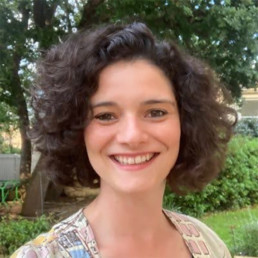
Written by Emma Sheppard
Emma founded The MTPT Project, the UK's charity for parent teachers, in 2016 when on maternity leave with her first child. She has 12 years experience as an English teacher, Lead Practitioner and ITT Lead, and now runs The MTPT Project full time.
When I trained to teach in 2010, I was drawn into the profession by the motivation to Make a Difference. I wanted to be a Changemaker; to have Social Impact; to Do Good. And I was willing to work all hours and make sacrifices to – essentially – satisfy my guilty white saviour complex.
Maybe that’s a little cutting: after all, a sense of moral purpose and the pursuit of meaningful work are values to live and stand by.
But, two years later, after missing holidays with my family, developing chronic migraines and unable to identify any other hobbies beyond the bassoon that I had once enjoyed (but no longer had time to play), I burnt out and quit UK education for a stint in an international school, and the luxury of an expat lifestyle.
Vivid memories of two recruitment videos remain with me from this time. In the first, a young man rides to school in the dark, and is the first in the building to switch on the lights. He excels at his job, cares for his students. At no point do we see him doing anything other than living and breathing teaching.
In the second, a young man wakes up, arrives at school, and we jump between his previous office job (dull) and his current teaching role (fulfilling). At dinner time, he talks about how great teaching is and then gets into bed, and the cycle repeats itself. At no point is there anything in his life other than teaching (and the back of his girlfriend’s head).
There is nothing incorrect about either advert: teaching is a brilliant and life-affirming career. And – let’s admit it – as teachers, we do love to regale our friends and family members with hilarious school anecdotes at every opportunity. The kids are the best bit. Indeed, both adverts are powerful appeals to potential recruits who want to do nothing but teach.
But for how long do we want to – or are we capable of – martyring our whole lives to our profession?
Surely, if we want to see improved teacher retention, we need recruitment campaigns that sell teaching as a career choice that allows for a life beyond the classroom?
This is where a recent video from Reach Teacher Training has got things so right. Like the videos previously mentioned, this advert follows two teachers from the start to the end of their working day, but the marketing team behind this piece have made some deliberate directorial decisions about the culture that new recruits can expect at Reach.
In the first iteration of the video – a 29 second clip – Reach dedicate 6 seconds to images of one of the teachers hugging her own child and waving goodbye at the door before she drives away. That is 21% of expensive marketing time given over to stating that teaching is a family-friendly career choice – at least at a Reach Academy.
In the second version of the video, Reach set aside a glorious 23 seconds (of 55 seconds in total, so 42% of the entire clip) to the life-friendly nature of their school. The first teacher joins her running club to run home with her pals in the sunshine. Meanwhile, we zoom in to the second teacher closing her laptop and checking her watch as she finishes her day. Her watch says 15:54 and, presumably, she’s on her way to school pick-up.
In both videos, we see the teachers enjoying animated conversations with their students. We see them delivering excellent lessons. We see them Making a Difference.
Indeed, the text that accompanies the social media posts sharing these videos reads: Join our community; Change lives; Train to teach.
But unlike those adverts that drew me into a military lifestyle of teaching that – as a 22-year-old with no real prior experience of the workplace – I could not sustain, these adverts state very clearly that the dream is possible. Teaching is a life-friendly career, state Reach, and one that you can enjoy for years to come around all the other beautiful moments that life will offer you.
Bravo, Reach Teacher Training, and the team behind your recent recruitment video.
Pride Month 2024 - Responding to homophobic language: guidance for schools using Oracy and No Outsiders
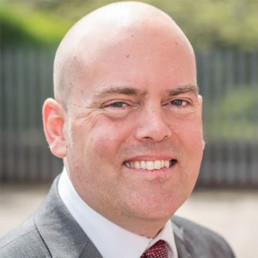
Written by Andrew Moffat
Andrew Moffat has been teaching for 25 years and is currently PD Lead at Excelsior MAT. He is the author of “No Outsiders in our school: Teaching the Equality Act in Primary Schools” and “No Outsiders: everyone different, everyone welcome”. In 2017 Andrew was awarded a MBE for services to equality and diversity in education and in 2019 he was listed as a top ten finalist in the Varkey Foundation Global Teacher Prize.
Ensuring equality for all cannot be achieved if any group of people feel they are unseen, unwelcome or feel targeted because of the person they are. As teachers, we strive to ensure that everyone feels seen, everyone feels welcome, and no one feels they have to hide their true selves, or parts of their identity.
In preparing children for life in modern Britain, we need to be clear and consistent in our efforts to make schools a safe place where children understand there are different ideas in society and prejudice may exist in the outside world, but prejudice and discrimination do not exist here, because in our school, there are “No Outsiders” and everyone is welcome.
Children are allowed to hold different views. I am a big champion of oracy as it encourages children to see both sides of a debate and understand it is possible to hold two views at one time. However, while different views are embraced, the othering of a group of people is not allowed. A child can disagree with a point of view and still show respect; this is the golden thread of a no outsiders ethos.
If a child chooses to use homophobic language, this must be tackled immediately. Children must understand there is no tolerance of prejudice at our school. It is the job of any adult to respond to homophobic language, as this is a safeguarding issue (KCSIE, 2023, “Children who are LGBT” page 51),
A quick response is; “Excuse me?” or, “What do you mean by that?” followed by, “And what do we say at our school?” to which the expected reply is “There are no outsiders”. Reiterate, “That’s right, there are no outsiders here, so you need to think about the language you are using. How are you going to put that right?”
All homophobic incidents should be recorded, and parents informed.
If homophobia arises in a debate where no individual is being targeted but there are attitudes forthcoming that need to be addressed, make sure they don’t go unchecked. An oracy framework enables us to challenge such attitudes effectively by asking the class to respond; “Would anyone like to respond to that?”. If the comment is offensive, for example if a child says, “gay people are wrong” it’s important that the adult responds immediately along the lines of;
“Can we think about the language we are using here… those ideas may exist in the outside world, but we need to be really careful about the words we use here. To say something is ‘wrong’ is different to saying, you ‘don’t agree’ with it. Do you want to re-phrase so that you are not othering anyone or being offensive?”
“What does the law say about this?” (The Equality Act, British law says it’s ok to be LGBT)
“What do we say at our school about different people?” (We say there are no outsiders, and everyone is welcome here.)
It’s vitally important the teacher addresses the attitudes while not giving their own opinion so we don’t get in to an argument or lead the children down any particular path. What we need to do instead is remind children it is ok to hold different views (“and that’s what makes this debate so interesting”) and we can still show respect and non-judgement. It’s ok to disagree with one another, the important thing is that everyone still feels they have a place here, including the child who is being offensive. It is the child’s views that are not welcome; the child is still welcome.
If a child brings their faith into the discussion; “My religion says it’s wrong”, respond in this way:
“You’re right, there are different views about this in different religions. And that’s the best thing about living in the UK- we have different views and beliefs, freedom of speech and democracy, and we have the Equality Act which protects religion and belief, so people are allowed to hold those views under British law. Who else is protected under the Equality Act? (disability, age, race, pregnancy and maternity, marriage and civil partnership, sex, LGBT) hmmm that’s interesting isn’t it – on the one hand you have religion and belief and on the other you have LGBT … both protected, both allowed… so I suppose we have to find a way to respect both views. We can co -exist without saying the other is wrong….”
And then open out the conversation, move it along using the oracy technique; “Who wants to build on that?”
Keep coming back to “That’s why we say there are no outsiders… we can have different opinions, and we can still respect each other. No one is pushed out because of their religion, their race, or because of their sexual orientation.”
I recognise that these conversations are not easy but they are important and we need to be having them with our children. My advice is to practice responses with each other as a staff team.
Here are some useful assembly links from www.no-outsiders.com:
https://no-outsiders-assembly.blogspot.com/2024/05/pride-2024.html
Assembly pictures : Football shirt (no-outsiders-assembly.blogspot.com)
Assembly pictures : football (no-outsiders-assembly.blogspot.com)
Assembly pictures : Bathroom (no-outsiders-assembly.blogspot.com)
Assembly pictures : Beano (no-outsiders-assembly.blogspot.com)
Assembly pictures : LGBT history month (no-outsiders-assembly.blogspot.com)
Assembly pictures : What is homophobia? (no-outsiders-assembly.blogspot.com)
Assembly pictures : Curly hair (no-outsiders-assembly.blogspot.com)
https://no-outsiders-assembly.blogspot.com/2024/06/veteran.html
South Asian Heritage Month: free to be me.

Written by Zahara Chowdhury
Zahara is founder and editor of the blog and podcast, School Should Be, a platform that explores a range of topics helping students, teachers and parents on how to ‘adult well’, together. She is a DEI lead across 2 secondary schools and advises schools on how to create positive and progressive cultures for staff and students. Zahara is a previous Head of English, Associate Senior Leader and Education and Wellbeing Consultant.
This year’s theme for SAHM is beautiful: free to be me. As we celebrate lived experiences, storytelling and authenticity, it seems only right that freedom and embracing our individual narratives is next.
This year’s theme has made me think where have I felt my most free? It’s not an easy question to answer. You see, growing up South Asian, (in my case, a British Pakistani Muslim, who’s family was born and raised in Africa), masking your identity can often feel normal, particularly when masking makes you feel safe in public, school and at work. Returning home, comes with its own comforts and conflict: finding joy in your culture and sticking out because you don’t really ‘fit’ within it either. Freedom then becomes a rather grey area and one that does not feel easily attainable.
Over the years, particularly I adulthood, there are a few spaces where I have come close to ‘free’: one was in my classroom. When teaching, my classroom was predominantly full of students who looked like me, shared similar lived experiences and most importantly we connected over an understanding of shared ambitions, aspirations and values. I felt free in an office with a colleague who shared my heritage; breaktimes and lunchtimes were full of laughter, candid conversations and asking each other, ‘what did your mum use to store atta in the kitchen?’, ‘were your sofas covered in shrink wrap too?’
Since then, I have felt most free in conversation with South Asian educators across the sector, most recently in conversation learning all about the wonders of Pehalwaan Juice (if you know you know…I definitely didn’t!). In many ways I share this with caution: for someone who works to amplify diversity, is there a problem if my freedom is sought and felt within my own community? Do I then just enjoy being a part of my own echo chamber?
The answer is no. Within these spaces diversity thrives. Diversity of thought, feelings, faith, work, experiences – being South Asian does not make us all one and the same and every South Asian friend, colleague and student I have connected with has a different story and identity. If anything, the freedom I feel in these spaces makes me more determined to centralise my identity in mainstream spaces too.
My childhood and teen years were branded with the term ‘coconut’ – in many ways, I didn’t think much of it then and I don’t think much of it now. What I do think about now though is how the identity of a ‘coconut’ lacked freedom. Consciously and subconsciously (and I really hope fellow South Asians can relate) I spent my childhood and adolescence straddling between several identities, depending on the audience – and I happened to be pretty good at it; I still am (we are pros when it comes to masking). I (still) do not know enough about my heritage, and I still don’t feel very ‘white’ either. Perhaps this is what imposter really means.
I studied all of this at university, wrote about it for my dissertation. 15 years later, specialising in a field that very much reflects the truth of my life couldn’t be more imperfectly perfect, no matter how much I question it on a daily basis (awareness and celebratory months are only one piece of the ‘work’). If anything, my experiences as a teacher and now EDI trainer, speaker and consultant are in some ways liberating and in other ways, revealing of just how far ‘we’ (marginalised and minorities in the West) have to go to be free.
South Asian Heritage is rich, diverse, nuanced and just huge – I am so naive and ignorant of its beauty. There is so much to learn. I’m not sure I’m free to be me just yet…but I think (and hope) we’ll get there soon.
In light of this and all of the learning and connections we have to make, I’m excited to share a space, network and group for South Asian Educators to connect, talk and be. Assistant Headteacher and Author, Yamina Bibi has said, the network will be a space ‘for anyone who is looking for a safe space for those of South Asian heritage. The challenges and issues facing South Asian Educators is somewhat different to those from other heritage groups as they are often thought of as the hard workers, obedient, quiet, shy, oppressed by colleagues and society in general. This network will support more educators to have their unique voices heard.’ We want this network to be collaborative, safe, empowering and a community where we can learn from one another too. Please Join us here!

